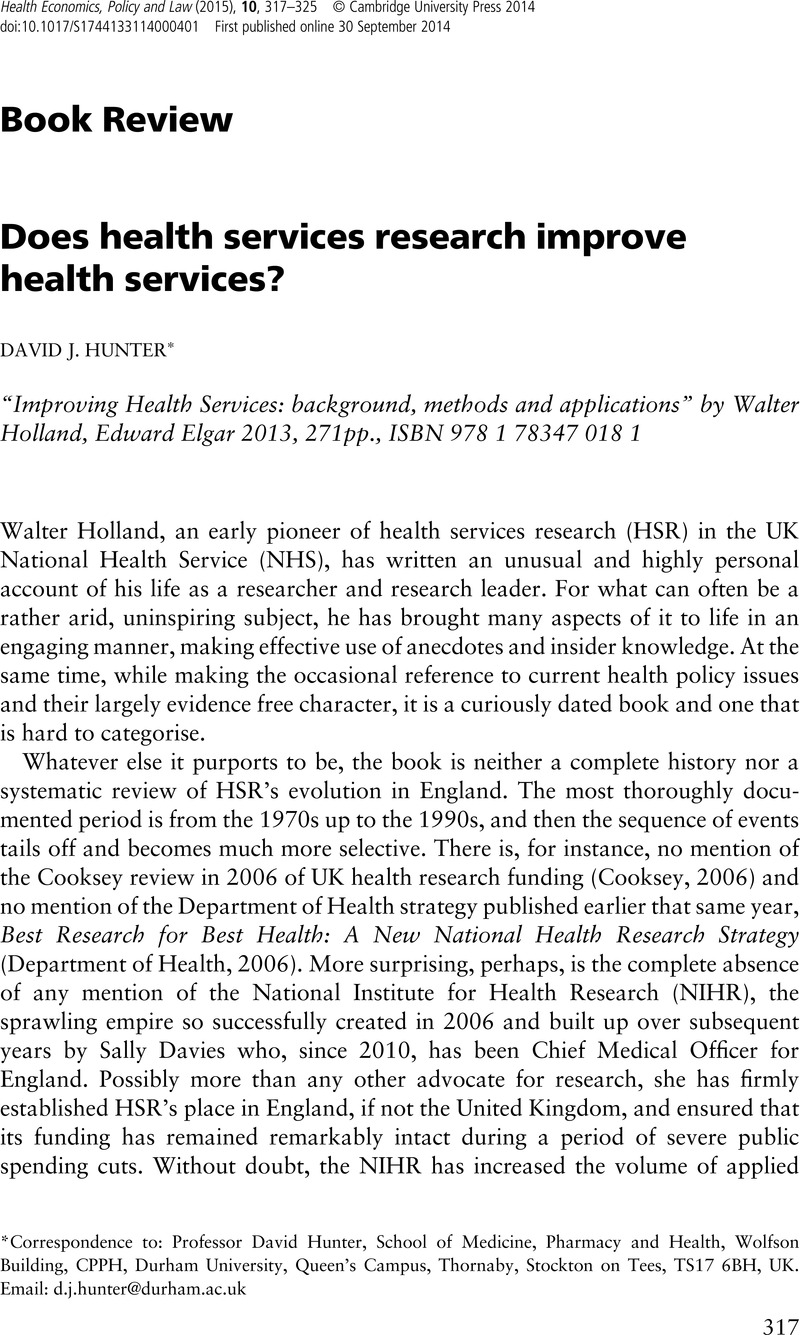Crossref Citations
This article has been cited by the following publications. This list is generated based on data provided by Crossref.
Frith, Lucy
2017.
Why health services research needs bioethics.
Journal of Medical Ethics,
Vol. 43,
Issue. 10,
p.
655.



